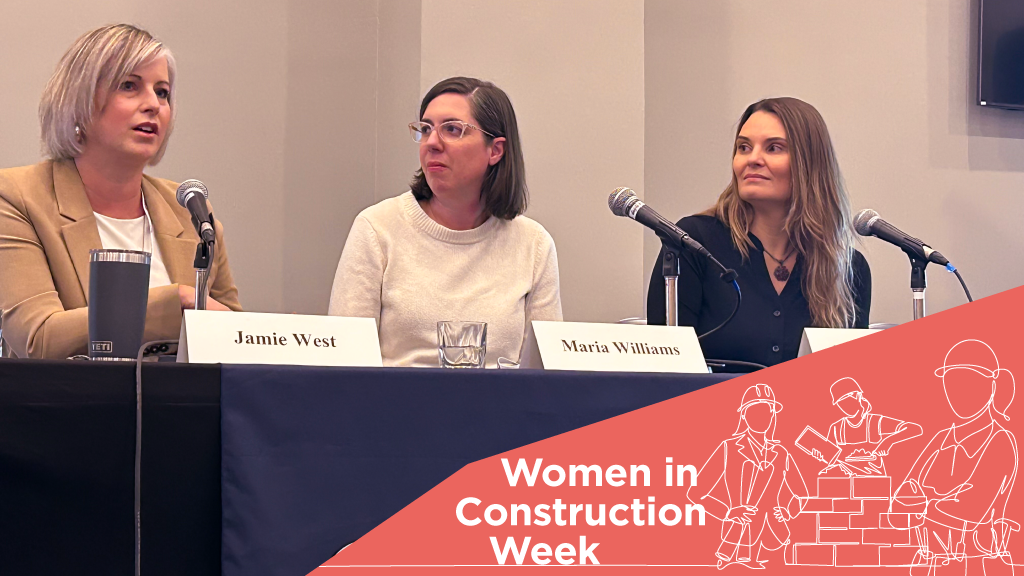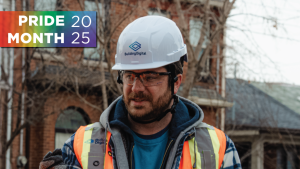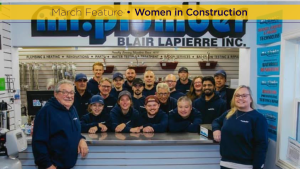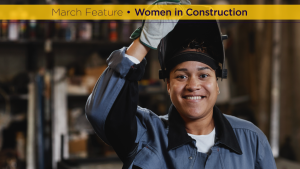Workers should be defined by ability, not gender, said Jamie McMillan, founder of Made in the Trades, who was part of an industry think-tank discussion at a recent Canadian Institute conference.
“Making the trades a friendly environment for everyone is not so much about promoting just a certain group. It’s not about being exclusive to one group. It’s about being inclusive to all groups and recognizing that we all have what it takes in us as humans to do whatever the heck we want. We should not be defined by gender. We should be defined by our ability,” McMillan told the audience.
“With the technical advancements that we have in the industry today, it’s no longer about muscle. It’s about using your brain, using your body mechanics, using your emotional, mental, physical intelligence. If we could get everybody to be on that same page, I think that would change the industry.”
An all-female panel discussed their experiences during a session billed Addressing the Costs and Risks of The Canadian Labour Shortage: Practical Strategies for Fostering an Approachable Industry at the conference in Mississauga, Ont.
The panel was moderated by Lindsay Reynolds, principal project manager and ODACC adjudicator with Hancock & MacArthur Inc.
Creating an inclusive workplace
While there is a labour shortage and companies are looking to attract more women and under-represented groups into construction, they should not lose sight of the fact all workers need to be treated with respect.
McMillan recalled last year when then Minister of Labour Monte McNaughton announced companies must have clean bathrooms onsite.
“Women aren’t the only ones onsite that deal with those issues. Men need clean bathrooms,” McMillan pointed out. “This is a safety issue, that’s what it comes down to, but when we start to cross the line and scream ‘ra ra ra women,’ the only thing that’s happening is we’re actually making the men go the other way. The pendulum has been up here for how many years? It’s been a male-dominated industry. Now you’ve got people screaming, especially on social media, that it needs to swing the other way.
“They’re so focused on them that they don’t see that we need to settle in the middle. We need balance and if we don’t have that balance it’s going to constantly be swinging back and forth. That’s where the damage is.”
Allies, mentors and sponsors
The women also talked about the importance of having good, strong mentors, sponsors and allies.
Maria Williams, a project director at Chandos Construction, recalled one particular project manager who supported her early in her career.
“I was responsible for the co-ordination of all the drawings and making sure things flowed properly and that the superintendents could do their job,” Williams said. “The trades came into the trailer and would often times mistake me for the secretary and go to my PM and say, ‘I need an answer to this question.’
“The PM wouldn’t hesitate and would say, ‘I think Maria has that information. I think you should go talk to Maria’ and he would send them to me…He had the answers, he was the PM. He purposely sent the trades to me so they would start seeing me as a part of that team and start seeing me as a colleague not the lady who faxed their timesheets over to their companies at the end of the week.”
Jamie West, president of Peninsula Construction, said she was lucky to have allies who have sponsored and supported her over the years.
“One of my greatest sponsors…he was instrumental in encouraging me and supporting me to get a professional coach,” said West. “That, for me, was a real changing moment because it gave me the tools to actually acknowledge all of the leadership qualities and skills that I hadn’t acknowledged. As leaders and as executives, we need to be looking at our staff, we need to look for those diamonds in the rough. They are people that have those qualities and leadership. We need to support them and give them the tools to have success.”
It’s about looking at the big picture and trying to find solutions.
“We need to make trades more attractive. The training and career path for each individual is different…It’s not a one-size-fits-all solution and we need to be more creative,” West noted, adding men are more likely to apply for a job even if they are not fully qualified. “We’re seeing that we have to have that thought when we’re promoting women…We, especially executives or managers, look and say, ‘This is how you get here.’
“We have to have more of those conversations and meet people where they are and find out how to get them to where they want to go.”
Follow the author on X/Twitter @DCN_Angela.








Recent Comments